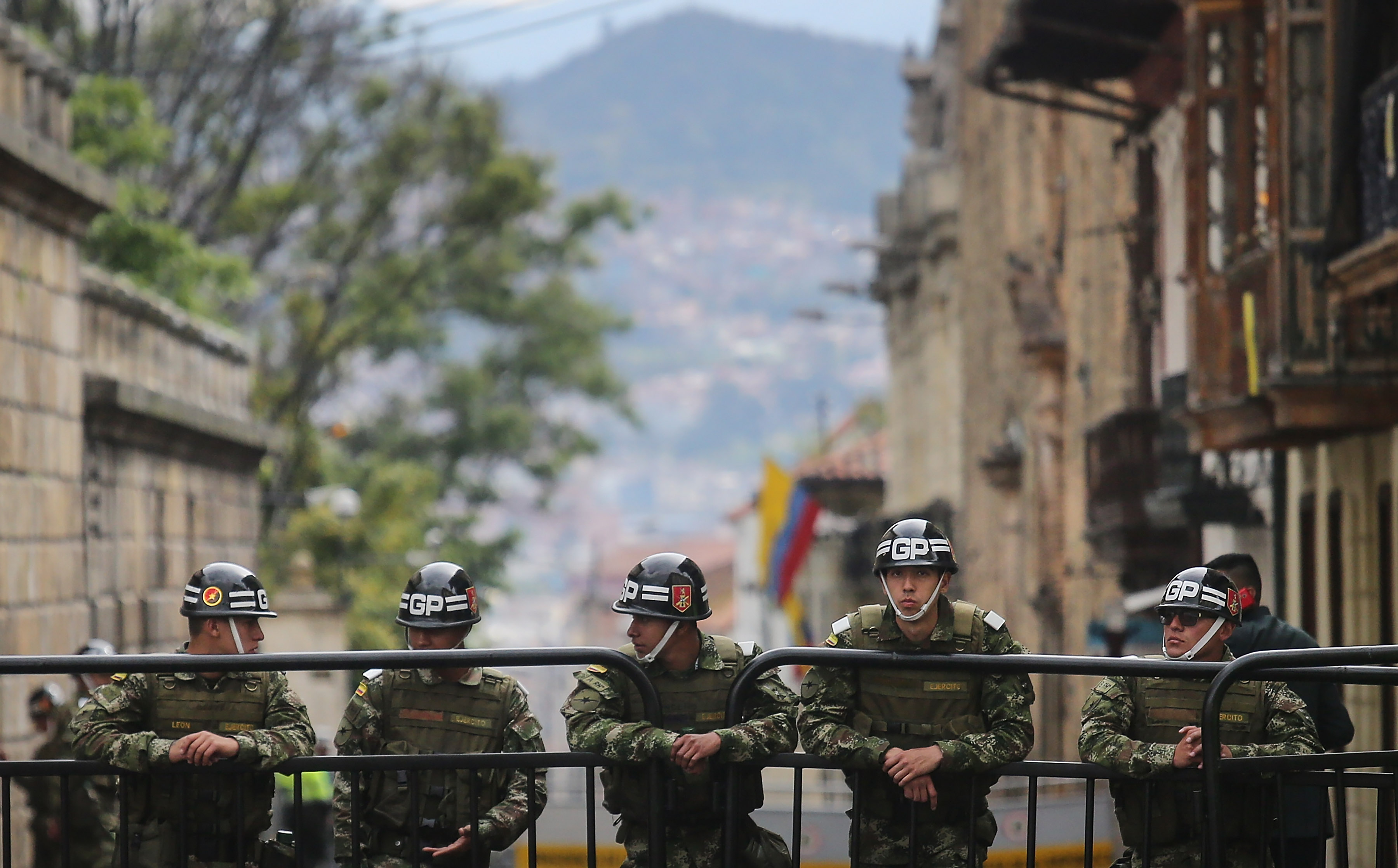
Two Colombian politicians brutally assassinated: Peace accord in ruins
The killings signal the unraveling of the peace deal that aimed to end the more than 50-year civil war.
Karina García Sierra, at 31 years old, was positioning herself to become the first female mayor of Súarez, in the Cauca department, in the west of Colombia.
But on Sunday night, she, her mother, and four other political and social leaders became the latest casualties of more than five decades of civil war, murdered at the hands of the Revolutionary Armed Forces of Colombia (FARC).
On Sept. 1 — just days after FARC rebels announced a renewed call to arms against the Colombian government due to dissatisfaction with the current peace deal — the car carrying García, her mother, and four other leaders, including a candidate for Suárez’s City Council, was stopped in the middle of the road by another vehicle, according to BBC Mundo. An armed group got out of the car, firing shots and throwing hand grenades, and afterwards set the vehicle on fire. Authorities confirmed the deaths of the six individuals on Monday.
García, the candidate for the Liberal Party who was running in the October elections, had published a video several weeks before in which she warned against “irresponsible” comments about her candidacy that could endanger her and have results that could be “fatal.”
The comments that she warned of included assertions that she would bring paramilitary groups and multinational companies to the municipality, and “take land away from the people.”
Her campaign had been given a security detail by the national security agency, but according to reports, none of the security officers were present at the time of the attack.
The assassinations have amplified growing tension between FARC dissident leaders and the Colombian government.
On Aug. 29, more than 20 FARC rebels appeared in a 32-minute Youtube video which served as a “call to arms” in the face of the 2016 peace accord which, according to Luciano Marin, the top peace negotiator and FARC commander, has not been upheld by the government.
Marin also suggested that FARC will work together with the National Liberation Army (ELN), known as a more radical guerilla group that has taken over some of the rural territories formerly controlled by FARC.
RELATED CONTENT
However, not all of the former FARC fighters are in agreement. Rodrigo Londoño, former FARC commander and current president of the Revolutionary Alternative Common Force political party, which was formed by former FARC rebels as a part of the peace accord, said that he and others continued to be committed to peace.
On the other side is Colombian President Ivan Duque. The conservative leader has advocated for revision of the peace deal since coming into office a year ago, arguing against some of the aspects of the law which allow for greater leniency for former FARC fighters in exchange for their testimonies.
Since 2016, it's estimated that hundreds of social leaders — activists, environmental leaders, human rights defenders and others — have been assassinated. Though Duque has said that the assassinations have fallen since he took office, pressure remains on the president to ensure that social leaders are better protected from armed forces or drug traffickers that have occupied ground formerly under the control of FARC.
Juan Alba, AL DÍA designer and resident of Bogotá, said that the people of Colombia are paying the price of a conflict that has already claimed more than 200,000 lives, as they continue to suffer violence from both sides.
“Here in Colombia they've assassinated many social leaders and the state doesn't seem to do anything for them; moreover, it's said that it's the same government with armed factions who carry out the extrajudicial executions,” Alba said by email.
“It's painful how Latin America continues to be a source of violence due to the pressure of the groups in power on one side, and the guerrilla forces and narcotrafficking on the other,” he added.
The death of a young politician and others is the tragic result of the impasse between the Duque administration and the rebels. In Colombia, it seems that peace is as elusive as ever.











LEAVE A COMMENT: